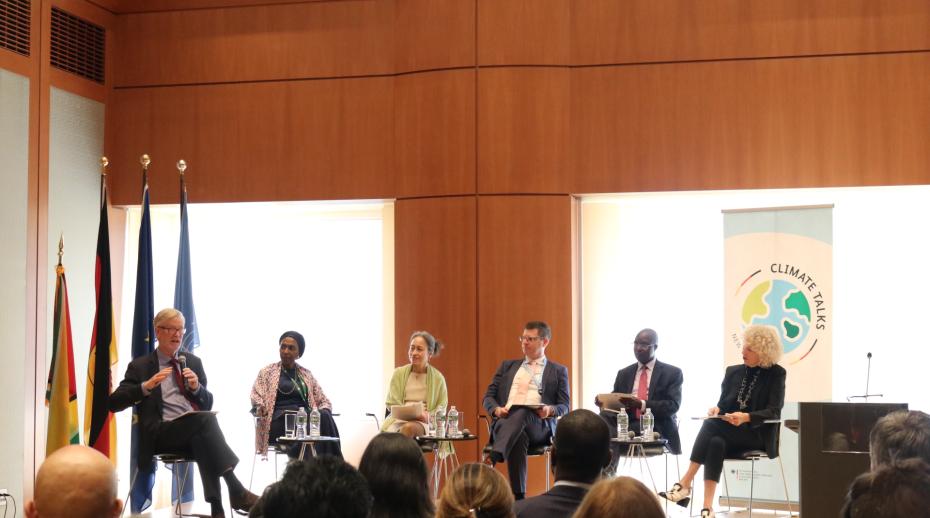
On 16 April, SIPRI engaged in a high-level panel discussion on ‘Climate, Food Security and Conflict’. The event was co-hosted by the Permanent Missions of Germany and Guyana to the United Nations.
Ensuring food security is paramount for maintaining peace and stability. Global hunger is significantly influenced by violent conflicts, while increased food insecurity has the potential to fuel grievances, leading to heightened instability and violent discord. In recent years, the lingering repercussions of the Covid-19 pandemic, coupled with an escalating cost-of-living crisis, have swiftly propelled a surge in food insecurity.
High-level panellists, including Jennifer Morgan, State Secretary and Special Envoy for International Climate Action, Germany, and Dan Smith, SIPRI Director, contributed to the discussions. Their insights shed light on the dynamics between climate change, food security and conflict, emphasizing the urgent need for coordinated action to address these global challenges. Dr Caroline Delgado, SIPRI Senior Researcher and Director of the Food, Peace and Security Programme, was also present to share research findings from recent SIPRI work on these topics.
About SIPRI’s research on climate, food, peace and security
SIPRI conducts a broad spectrum of research focusing on the nexus of food, peace and security, as well as the dynamic interaction between climate, peace and security. Specifically, the SIPRI Food, Peace and Security Programme explores the relationship between food security and violent conflict. A recent report examines the interconnectedness of food insecurity, climate, environmental pressures and violent conflict, proposing strategies to enhance peacebuilding within integrated climate-resilient food security interventions. SIPRI also supports the work of the UN Security Council by generating reliable, relevant, timely and actionable reports on climate, peace and security risks for specific countries and regions on the UN Security Council agenda. These reports can be accessed here.